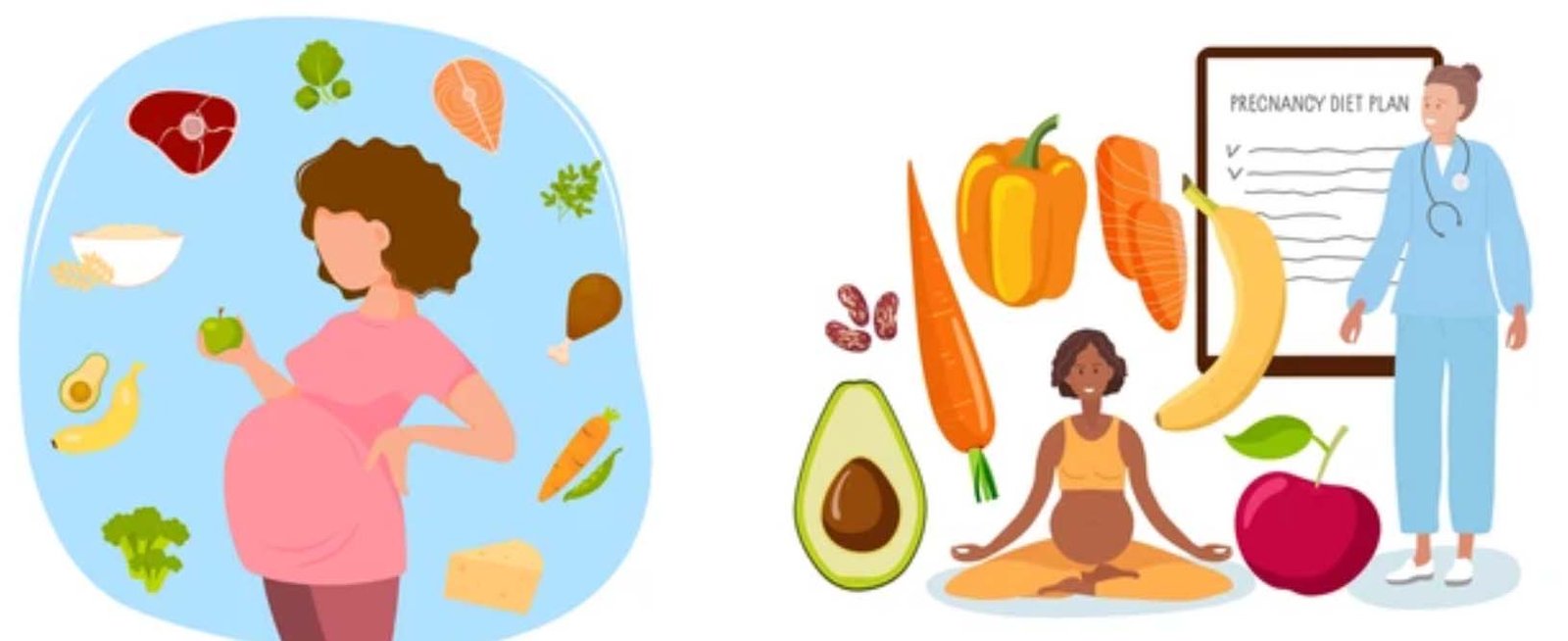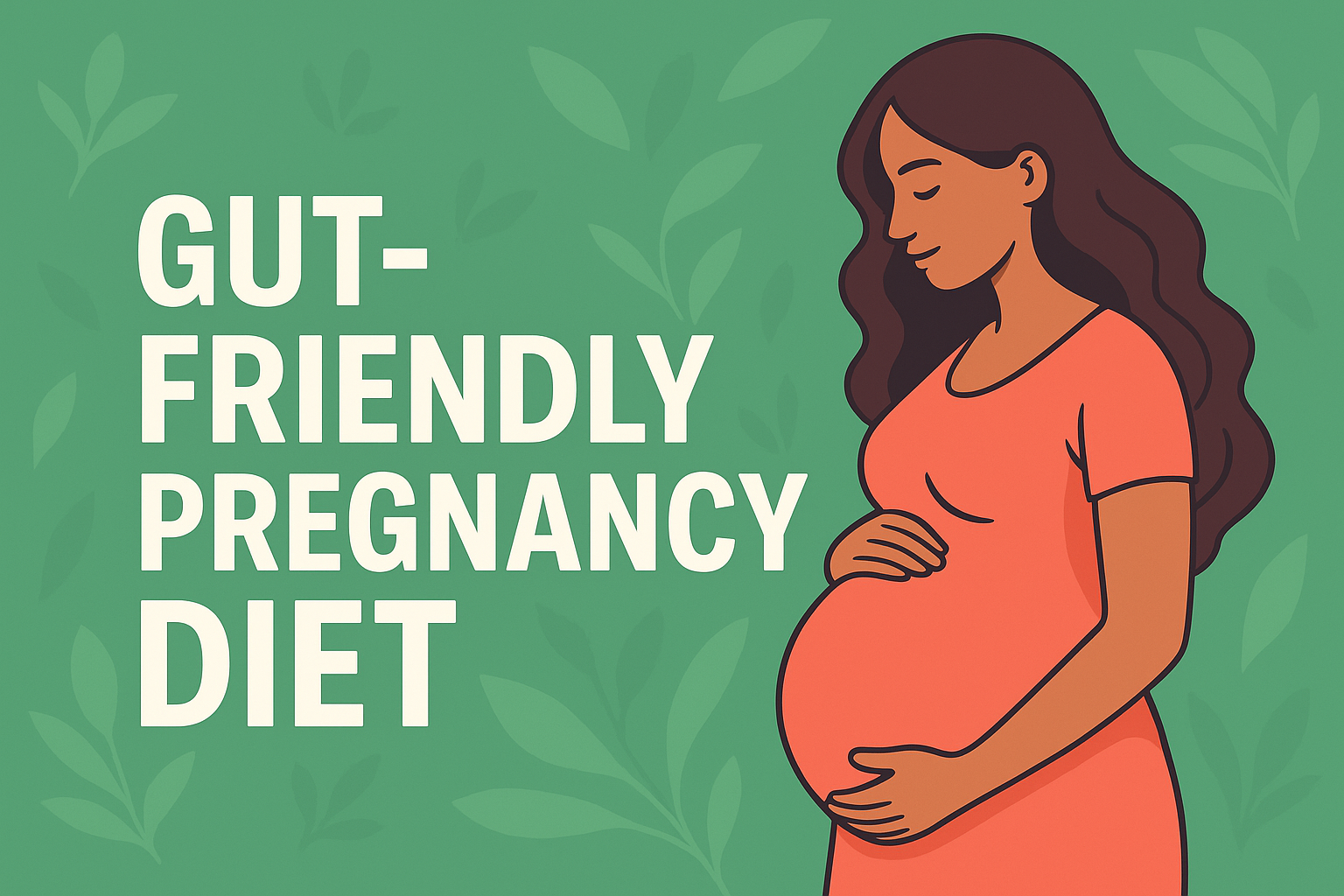
Pregnancy Superfoods: What to Add to Your Grocery List
Pregnancy Superfoods: What to Add to Your Grocery List
Pregnancy is an exciting journey filled with changes, anticipation, and—of course—lots of questions about nutrition. While you don’t have to “eat for two,” you do need to eat smart. The right foods provide energy, reduce discomforts like fatigue or morning sickness, and fuel your baby’s growth and development.
Enter pregnancy superfoods—nutrient-dense foods that pack vitamins, minerals, and antioxidants in every bite. But what exactly should go on your pregnancy grocery list? Let’s dive in.
Why Superfoods Matter During Pregnancy
Pregnancy increases your nutritional needs. Here’s why superfoods are essential:
- Support baby’s brain and organ development (omega-3s, folate, iodine).
- Boost maternal energy and immunity (iron, vitamin C, antioxidants).
- Reduce pregnancy complications like anemia, preeclampsia, or constipation.
- Promote healthy weight gain without excess empty calories.
The Ultimate Pregnancy Superfoods Grocery List
Here’s a detailed list of the 15 best foods to add to your shopping cart:
1. Leafy Greens (Spinach, Kale, Swiss Chard)
Why: Rich in folate, iron, calcium, and fiber.
Benefits: Prevents neural tube defects, reduces constipation, and supports bone health.
Tips: Add to smoothies, omelets, or soups for an easy nutrient boost.

2. Berries (Blueberries, Strawberries, Raspberries)
Why: Packed with vitamin C, antioxidants, and fiber.
Benefits: Boost immunity, aid iron absorption, and reduce oxidative stress.
Tips: Toss into yogurt, oatmeal, or salads for a sweet, healthy snack.
3. Avocados
Why: Loaded with healthy fats, potassium, and folate.
Benefits: Supports baby’s brain and tissue development, reduces leg cramps.
Tips: Spread on toast, add to wraps, or blend into smoothies.
4. Eggs
Why: A complete protein with choline, essential for brain development.
Benefits: Supports memory and learning in your baby, keeps you full longer.
Tips: Opt for boiled, scrambled, or poached—avoid raw or undercooked eggs.
5. Salmon (Low-Mercury Fish)
Why: A top source of DHA (omega-3 fatty acids).
Benefits: Promotes baby’s brain and eye development.
Tips: Enjoy grilled, baked, or steamed—but limit to 2 servings a week.
6. Greek Yogurt
Why: High in protein, calcium, and probiotics.
Benefits: Strengthens bones and supports digestion.
Tips: Choose unsweetened yogurt and add fresh fruit or nuts.
7. Nuts and Seeds (Walnuts, Chia, Flax, Almonds)
Why: Rich in omega-3s, protein, fiber, and magnesium.
Benefits: Boost baby’s brain growth, reduce risk of preterm birth.
Tips: Snack on a handful, sprinkle on salads, or blend into smoothies.
8. Beans and Lentils
Why: Plant-based protein rich in iron, folate, and fiber.
Benefits: Prevent anemia, improve digestion, and stabilize blood sugar.
Tips: Add to soups, curries, or salads for filling meals.
9. Sweet Potatoes
Why: High in beta-carotene (vitamin A precursor) and fiber.
Benefits: Supports baby’s eyes and skin development, prevents constipation.
Tips: Bake, mash, or roast with olive oil for a tasty side dish.
10. Whole Grains (Oats, Quinoa, Brown Rice)
Why: Provide B vitamins, fiber, and sustained energy.
Benefits: Help with morning sickness, regulate digestion, and boost energy levels.
Tips: Swap white rice for brown rice or quinoa, enjoy oatmeal for breakfast.
11. Oranges and Citrus Fruits
Why: High in vitamin C and hydration.
Benefits: Boost immunity, improve iron absorption, and reduce swelling.
Tips: Snack on fresh orange slices or add lemon to water.
12. Lean Meats (Chicken, Turkey, Beef)
Why: Excellent source of iron, protein, and B vitamins.
Benefits: Prevent fatigue and support red blood cell production.
Tips: Opt for grilled or baked lean cuts, avoid deli meats unless heated.
13. Milk and Fortified Alternatives
Why: Provide calcium, vitamin D, and protein.
Benefits: Strengthens maternal bones and supports baby’s skeletal growth.
Tips: If lactose-intolerant, choose fortified almond, oat, or soy milk.
14. Pumpkin Seeds
Why: Rich in magnesium, zinc, and iron.
Benefits: Improves sleep, boosts immunity, and prevents anemia.
Tips: Sprinkle on salads, oatmeal, or eat roasted as a crunchy snack.
15. Dark Chocolate (in Moderation)
Why: Contains antioxidants and magnesium.
Benefits: May improve mood, blood flow, and reduce preeclampsia risk.
Tips: Choose 70% dark chocolate and limit to small portions.
Foods to Limit or Avoid
- High-mercury fish: shark, swordfish, king mackerel.
- Raw or undercooked meats and eggs.
- Unpasteurized cheeses or milk.
- Too much caffeine (limit to ~200 mg/day).
- Alcohol (best avoided entirely).
Practical Grocery Shopping Tips
- Shop fresh: Choose seasonal fruits and vegetables.
- Go organic: Especially for thin-skinned produce like berries and spinach.
- Batch prep: Wash, chop, and store veggies for quick meals.
- Keep healthy snacks handy: Nuts, fruit, and yogurt beat chips or cookies.
Conclusion
Eating well during pregnancy doesn’t have to be complicated. By filling your grocery list with nutrient-packed superfoods—like leafy greens, berries, eggs, salmon, nuts, and whole grains—you’ll nourish both yourself and your growing baby.
Balance is key: no single food provides everything you need, but together these superfoods create a powerful foundation for a healthy pregnancy.


